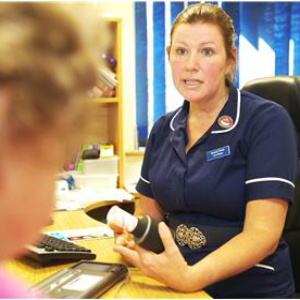Practices granted reprieve as one in three CCGs defer competition for GP services in the short term

Exclusive GPs will continue to receive LES funding for another year as just 15% of CCGs are opting for a competitive procurement process when tendering their services for 2014/15, a Pulse investigation can reveal.
Only 18 out of 112 CCGs, who responded to Pulse’s freedom of information request, were intending to put any services out to AQP or competitive tender, and of those, only three were tendering all services. The proportion was slightly larger with local authorities as one in five of the 73 respondents said they will put at least one service out to competitive tender for 2014/15.
However the delay may only be temporary as one in three CCGs told Pulse they had reprocured existing contracts without competitive tender in the short-term, while they reviewed services and procurement options.
Commissioning leaders told Pulse that CCGs retaining contracts with general practice may be key to providing ‘integrated care’ that the Government hoped to achieve, but greater clarity on competition was needed. Pulse has reported that some CCGs and local authorities have chosen to keep their contracts with GPs because they said it would be better for patient care.
Pulse approached all the CCGs and local authorities in England for information on their 2013/14 financial year LES budgets, and their predicted budget and procurement routes for recommissioning the services – now known as community service contracts – for 2014/15.
Nearly two thirds of CCGs said they had recommissioned services, competitively or via single contracts, but did not mention future plans, 29% said they had reprocured pending a review and 9% said they had already reviewed services. The three services most commonly put out to AQP were H.pylori testing, vasectomy, and phlebotomy services, athough there were no services which were always tendered competitively.
Analysis of the data also revealed that CCGs have allocated 4% more funding to commissioning enhanced services from GPs compared to 2013/14, while local authority budgets are set to shrink slightly by around 1%.
Related articles
- GPs face crackdown on prescribing costs after million-pound overspends
- Practice forced to offer £20,000 ‘golden hello’ to recruit partner
- GPs will stop initiating atrial fibrillation treatment under proposed NICE guidelines, BMA warns
- Labour pledges £100m to reintroduce 48-hour target to see GP
- Prominent GP calls for end to prescribing charges
Section 75 of the Health and Social Care act caused big concerns amongst leading GPs, with the new legislation requiring any service which could be provided by more than one provider be put to competition, forcing GPs to enter complex and costly tendering procedures against much larger providers. CCGs who avoid the process could find themselves in court, lawyers warned.
Last year three CCGs in Essex warned that, to avoid creating a ‘conflict of interest’ over GPs commissioning primary care services, they would have to tender all their services through AQP.
NHS Castle Point and Rochford, has now put all their contracts out to tender and Dr Sunil Gupta, clinical accountable officer, told Pulse: ‘[We] considered AQP to be the most robust and transparent process available to us that ensured consistency and sustainability.’
But neighbouring NHS Thurrock CCG has subsequently offered practices a one year grace period. A spokesperson told Pulse: ‘The CCG will be undertaking AQP for services previously known as LES services. The process will commence in June 2014.’
‘In addition, the CCG has issued one year contracts to incumbent providers to ensure continuity during this period and the reliability of primary care to respond to AQP services.’
Meanwhile NHS Stockport has recommissioned services for six months to give its practices time to federate and become competitive when services go out to AQP.
Dr Amanda Doyle, co-chair of the NHS Clinical Commissioners group and chair of Blackpool CCG told Pulse: ‘Clinical commissioners are faced with the decision of whether to tender local services every day, and have found there are a number of practical difficulties with the current system when trying to secure the best outcome for patients.
It is sometimes unclear to commissioners whether they are simply free to commission from a market, or whether they have to commission in order to make a market operate. It is an issue that we would welcome further clarity on,’
Dr James Kingsland, president of the national association of primary care and a GP in Merseyside, says that practice reprocuring services to looks after their GPs was ‘understandable’.
CCG decisions needed to be airtight to avoid challenge by private providers and that they must be certain a service could only be provided by a local practice. He added: ‘If CCGs can justify that having a registered list was an absolutely requirement and that nobody else could have done it, certainly they’re on safe ground.’
Dr Sam Everington, chair of Tower Hamlets CCG and a GP in East London said there was a greater understanding from all political parties that integration is ‘critical’ to delivering better care and would reduce the focus on competition.
He added: ‘It’s good for patients, it’s about integrated care – because that’s how you deliver it in the community, making sure you have all the bits of the jigsaw supporting the patient.’









